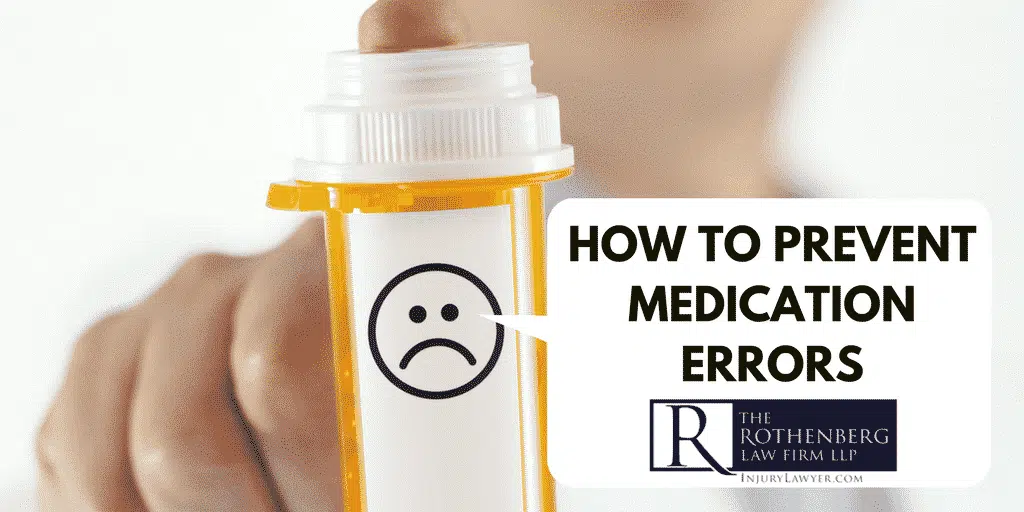
Patients can Help to Prevent Medication Mix-Ups and Mistakes
When many of us visit a doctor’s office, we expect that the physician has carefully analyzed our medical records and will not prescribe a drug that could have harmful interactions with a prescription medication we are currently taking. Similarly, as consumers, we anticipate that pharmacists will properly fill prescriptions and that we will always receive the prescription drug that we were prescribed. However, medication mistakes happen more often than you might think. According to a recent article in Harvard Women’s Health Watch, “medication mix-ups and mistakes sometimes lead to harmful drug reactions, which cause about 700,000 emergency department visits and 100,000 hospital admissions each year.”
There are many different types of medication errors. For example, a patient can receive the wrong drug altogether, or sometimes the patient can receive the correct prescription medication but in the wrong amount. In other situations, the patient receives the correct medication in the right dosage, but the drug has a harmful interaction with another drug that the patient currently takes. Or, the patient may have a known drug allergy that was not noted when the drug was prescribed. As the article underscores, “medication errors are common, and they take many forms.” As we age, our risk of a medication error increases because “you’re more likely to be taking multiple drugs, sometimes prescribed by different doctors.”
According to an article in WebMD, misuse of prescription drugs and medication errors are the second- and third-leading causes of medical errors in the United States. The U.S. Centers for Disease Control reports that up to 50% of antibiotics are prescribed unnecessarily, or have been prescribed incorrectly. Moreover, there are approximately 1,000 medication mistakes in hospitals across the country every day, and a majority of those errors concern incorrect dosage.
What should patients do to prevent medication errors? Patients should always keep a list of every drug they are taking, including over-the-counter drugs, and give it to every healthcare provider who is prescribing a drug. Knowing about different types of medication errors can also help patients to avoid injuries caused by mistakes.
Common Types of Medication Errors
What types of medication mistakes are most common, and what can patients do specifically to avoid each of them? The Harvard Women’s Health Watch article lists the following:
- Wrong drug or wrong dosage: patients can ask questions about the drug and clarify the dosage they should be taking. If the drug you pick up is not the drug that you were prescribed, speak up and ask the pharmacist.
- Drug interaction issue: always keep an up-to-date list of the medications you take and give it to your prescribing healthcare provider. Be sure to list any herbal supplements and over-the-counter products.
- Side effects and/or allergic reactions: Ask your doctor about all possible side effects, and find out what you should do if you experience any of those side effects.
- Duplicate medications: Be sure that you know why you are taking each drug, and check to be sure that you still need the medication. For example, if you were prescribed a drug more than a year ago, ask your doctor if you still need to be on the drug.
- Over-the-counter medication problems: Patients should never assume that drugs are safe simply because they do not require a prescription. Always read the label carefully, follow all instructions for using the drug, and be sure to alert your doctor to the use of over-the-counter drugs to avoid harmful interactions.
If you or someone you love suffered injuries as a result of a medication mistake, contact a medical malpractice attorney to determine your rights.



